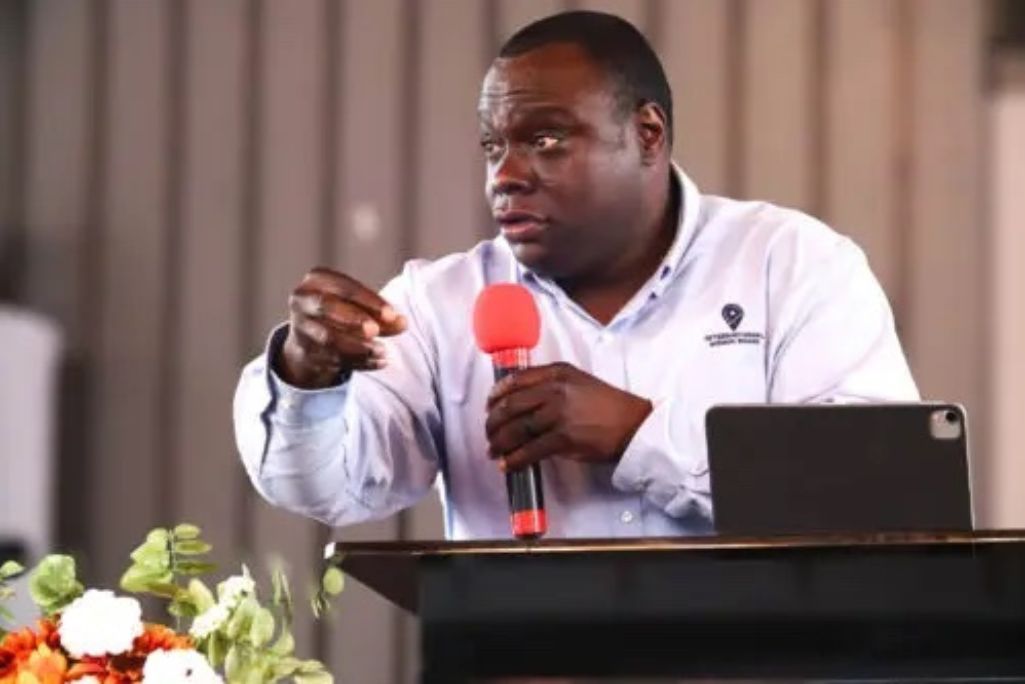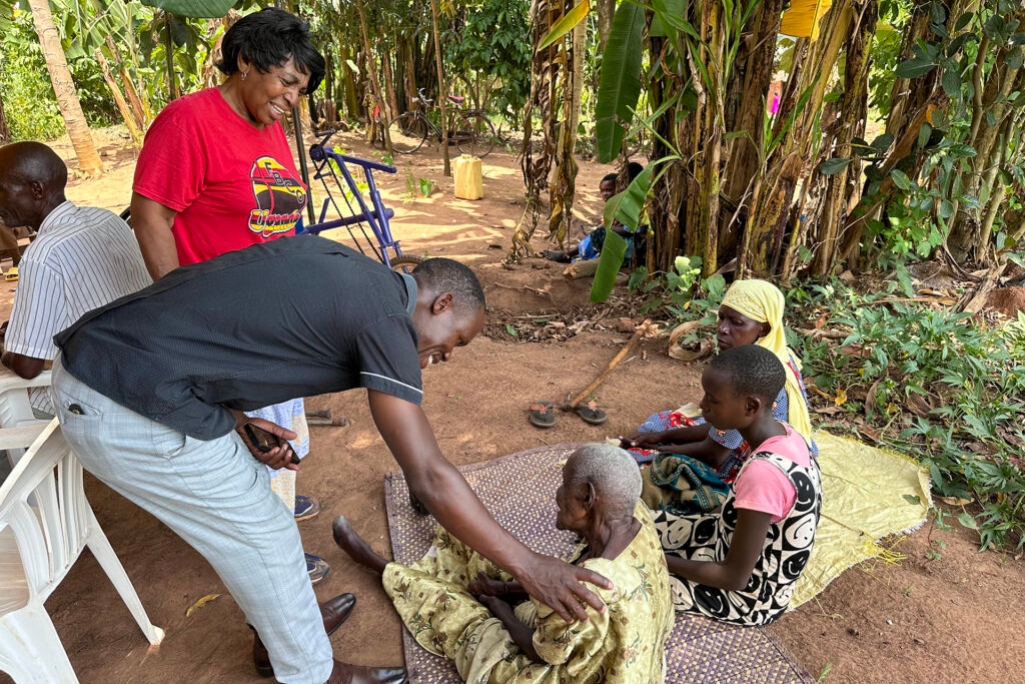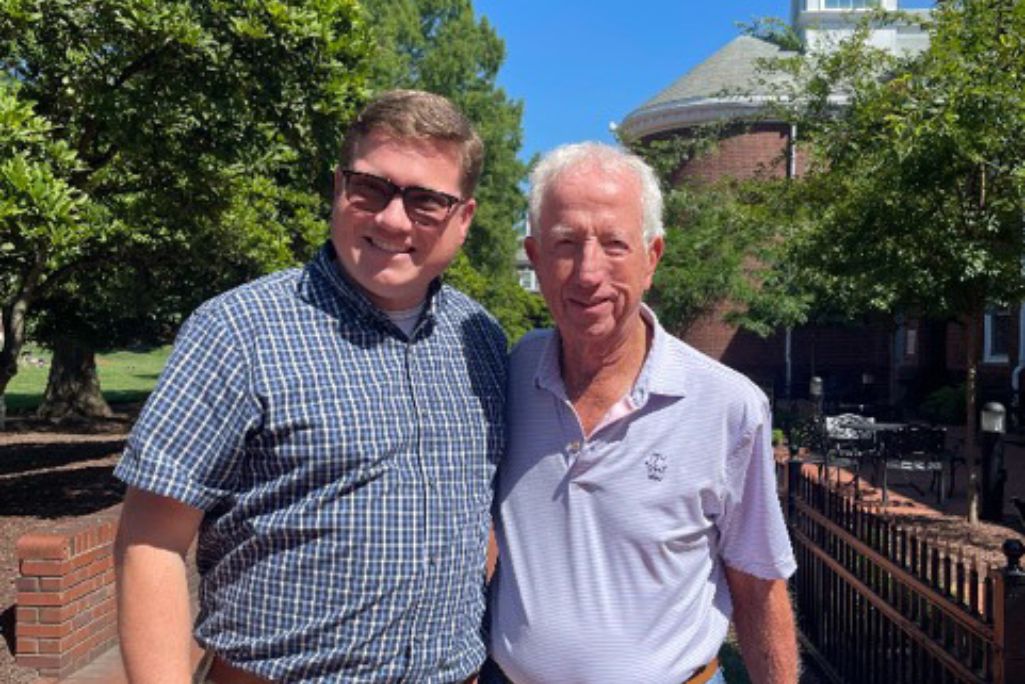
Quintell Hill, the International Mission Board’s (IMB) strategist for African American church mobilization, encouraged attendees to, like George Liele, step into missions near and far.
LANHAM, Md. — Despite an expected snowstorm, more than 100 people attended the third annual George Liele Missionary Breakfast at Sharon Bible Fellowship Church earlier this month.
The breakfast, sponsored by the African American Fellowship (AAF) of the Baptist Convention of Maryland/Delaware (BCM/D), is designed to introduce people to George Liele, a freed slave who became the first ordained African American Baptist pastor. Liele planted First African Baptist Church in Savannah, Ga., the oldest African Baptist church in North America, and is acknowledged by most as the first overseas American missionary.
Liele, though a pioneer in Baptist missions, is still unknown to many. The AAF of the BCM/D has been working hard to change that.
It was Robert Anderson Jr., pastor of Colonial Baptist Church in Randallstown, Md., who, after researching Liele declared: “He should be in the Christian hall of fame!”
Anderson made a successful motion at the 2019 Southern Baptist Convention (SBC) annual meeting in Birmingham to add George Liele Sunday to the SBC Calendar. That resulted in the SBC’s annual Church Planting Evangelism Missions Day on the First Sunday of February. Then in 2023, the AAF of the BCM/D established the George Liele Institute to provide affordable training for individuals of all ethnicities, with a focus on equipping African American congregations for ministry and missions.
A holy discontent
Quintell Hill, the International Mission Board’s (IMB) strategist for African American church mobilization, shared at the missions breakfast, emphasizing the need for African Americans to step forward in missions at home and abroad.
While in a Christian college history class, Hill realized something was missing — Black preachers. George Liele was mentioned, he said, but only briefly. Later, while working on his doctoral dissertation, studying Christ-centered preachers in a multi-ethnic context, he once again saw Liele’s name and began to research further.
“I really focused on how the Lord had been moving in his life, and then, another story that stood out was Andrew Bryan’s story.” Bryan was converted under Liele’s teaching and succeeded Liele as pastor of the First African American Church in Savannah.
“I remember reading about Andrew Bryan being beaten just for preaching the gospel, and I remember Tertullian, the early church father, saying, ‘The blood of the martyrs is the seed of the church,’” Hill said, showing emotion. “You hear a lot about the church fathers. I didn’t hear about Andrew Bryan … and I had a holy discontent.”
God used that discontent to drive Hill to seek to educate, engage and mobilize African American Christians to follow in Liele’s footsteps, to persevere, lead and be bold in missions near and far.
Referring to 1 Timothy 4:12 which says, “Let no one despise you for your youth, but set the believers an example in speech, in conduct, in love, in faith, in purity,” Hill showed photos of sports greats, including his favorite, Michael Jordan.
“We are all about heroes,” he said. “Who will be the next George Liele? Do your kids know who he is and what he’s done for them? I believe we need to be focused on giving our teenagers and our next generations a hero that’s worth something.”
Ultimately, he said, we must point the next generation to Jesus. “The question is, are you going to join God on mission?” he said. Hill also shared about upcoming international mission trips and urged attendees to get involved in missions.
Slavery: Tell the story
Setting the context of the world in which Liele lived, author and historian Karen Wortham said, “I don’t know about Baltimore, but in Savannah, our history is so bold, it’s all over the place. We still have the barracoons where they put slaves in storage. Have you ever heard of the word ‘lazaretto?’ It was a quarantine station they put slaves in when the ships brought them in. Ladies and gentlemen, the auction was real.”
Wortham shared the details of the slave catching trade, the horrific conditions of their “storage,” and the degradation of the auctions. She said visitors in the Savannah marketplace today have no idea that slaves were inspected and sold near the same area where they now buy artwork and eat ice cream.
Victor Kirk, AAF vice-president, pastor of Sharon Bible Fellowship and BCM/D church strengthening missionary, organized and led the breakfast. He thanked the participants, saying Hill‘s presentation was “passionate, challenging and motivating” and Wortham “…brought more light to the African American community to help us know where we came from and where our struggle was, and how far we’ve come and how far we need to go. And that’s a piece our young generation needs to know.”
As part of the breakfast, attendees gave to a George Liele Scholarship fund to help support Maryland/Delaware African-American churches in their mission efforts.
(EDITOR’S NOTE — Sharon Mager is communications specialist for the Baptist Convention of Maryland/Delaware.This article originally appeared at bcmd.org.)


